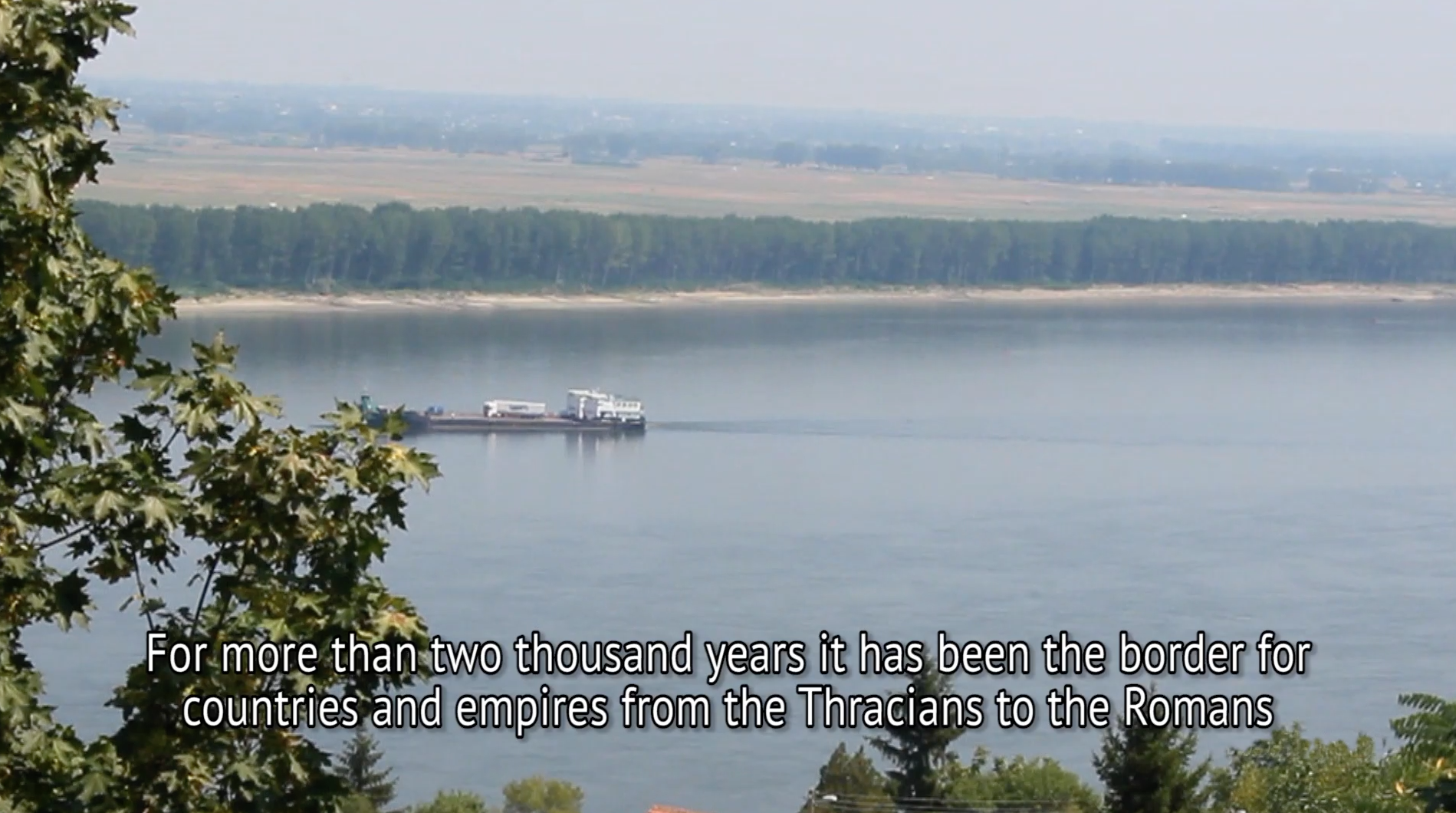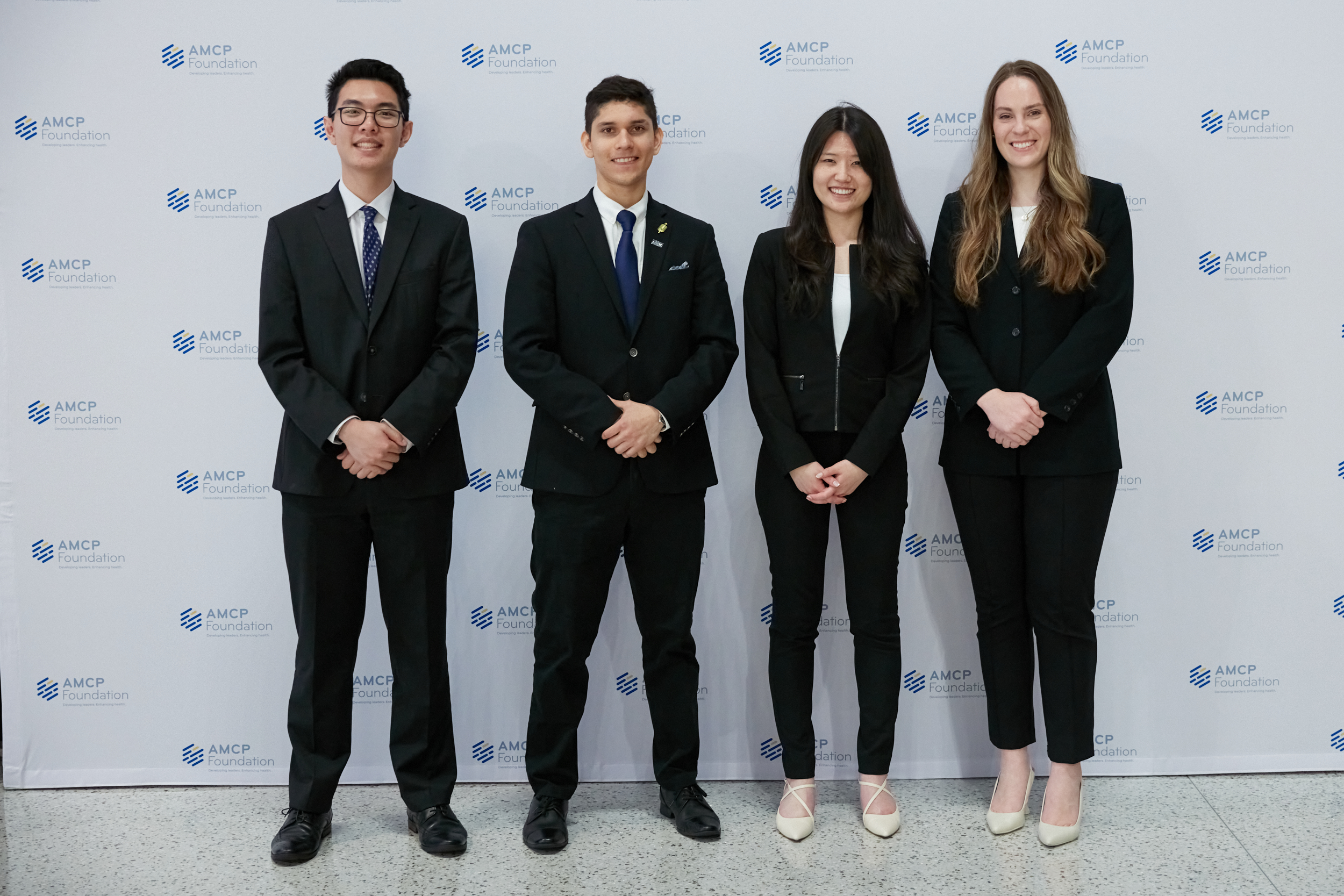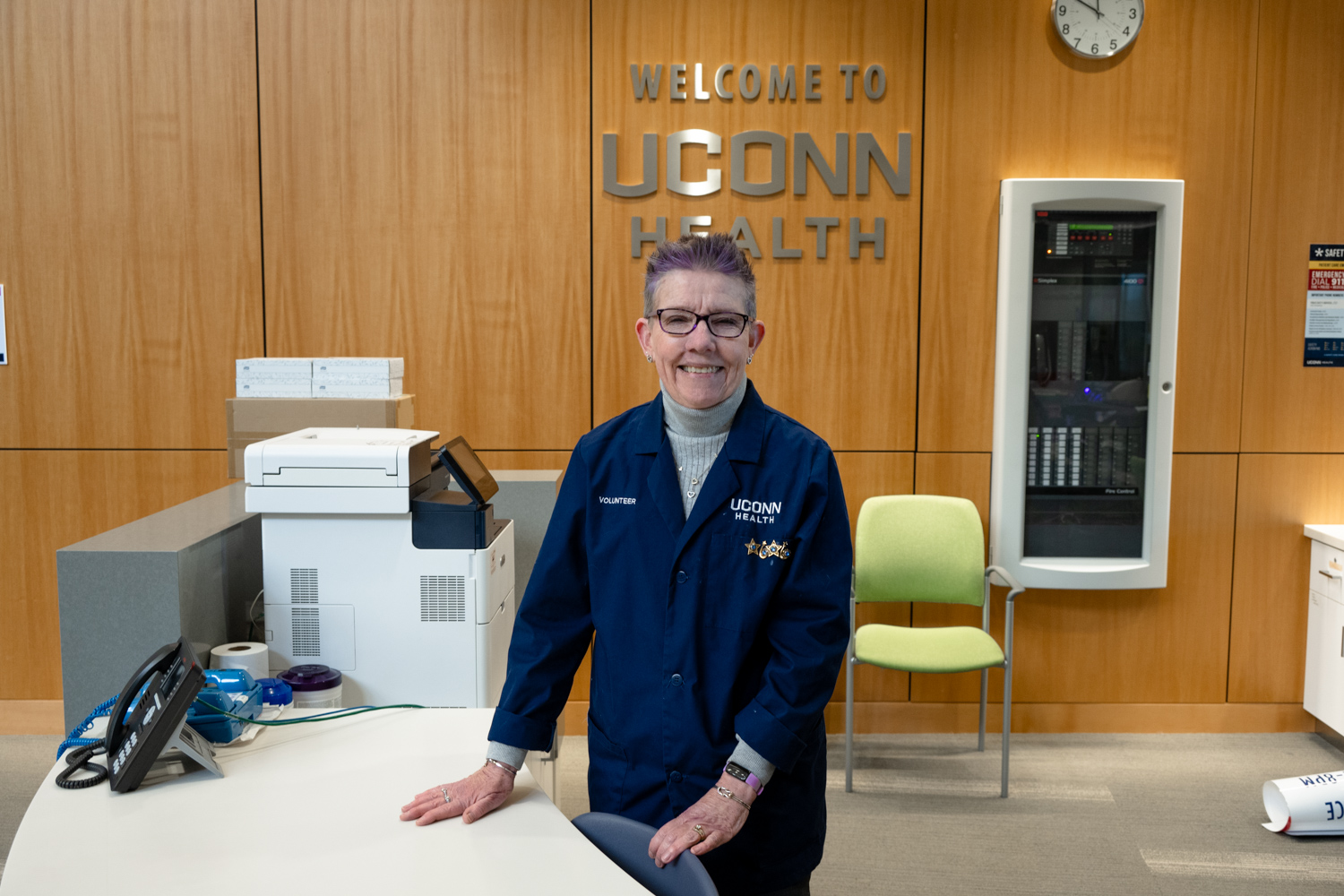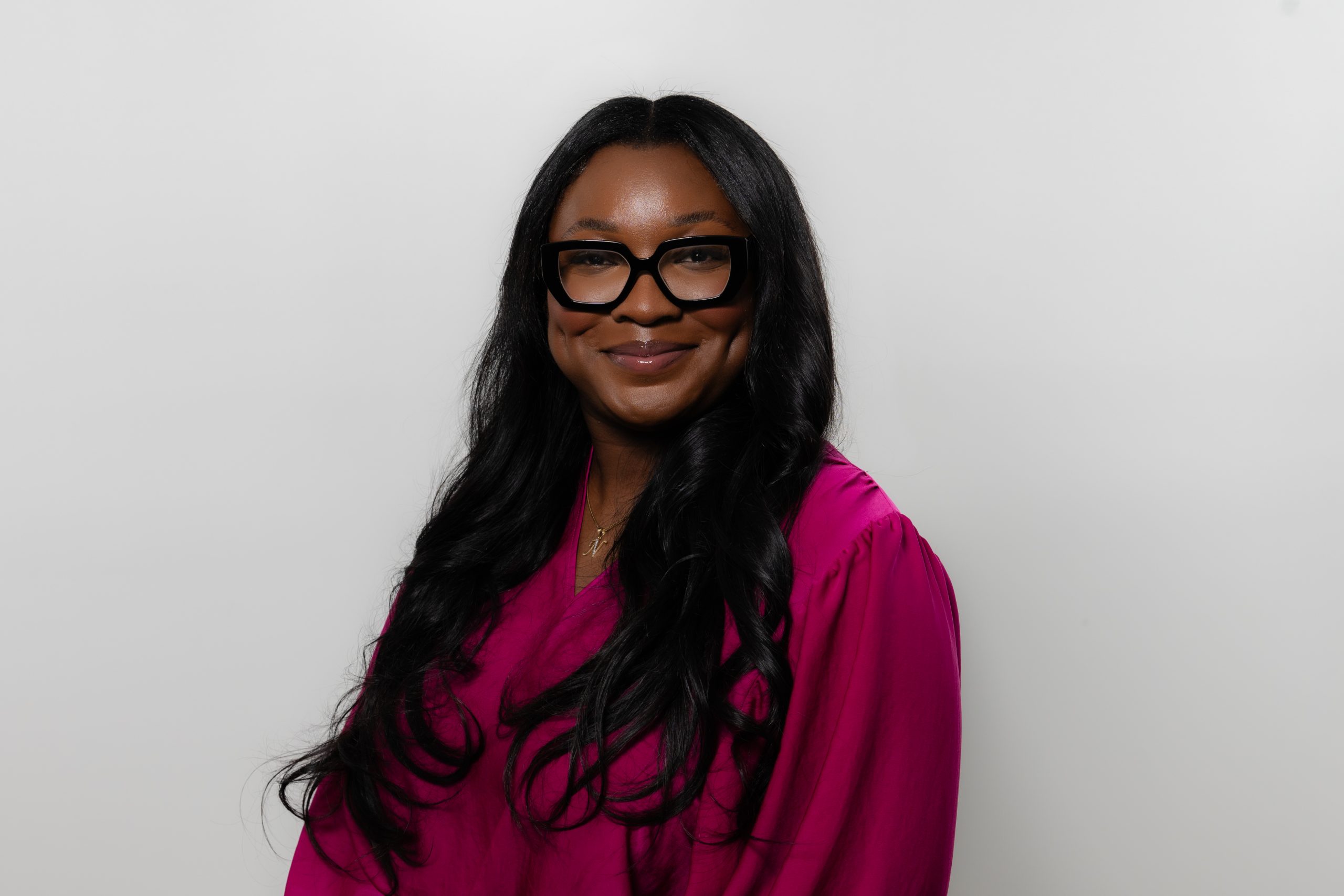After swimming across the Danube River from Romania to Bulgaria during a trip through eastern Europe, Ted Efremoff ’06 MFA began to think about what the river represented to the people in the 10 nations through which the water flows.
“A swim in the river for me is time spent in an enjoyable, natural environment,” says Efremoff, who was born in Moscow and grew up in the Soviet Union. “But as I’m swimming across the river I’m also crossing a cultural border, a linguistic border, and a political boundary.”
A multimedia artist, Efremoff decided to explore the borders and boundaries represented by the Danube as the subject of a one-hour documentary film, that serves as the centerpiece of his exhibition, “Mother Tongue,” which is on display at UConn’s Contemporary Art Galleries through Oct. 13.
“Mother Tongue” also includes a 10-minute video, “Crossing the Danube,” that shows how swimming across the river symbolizes crossing different types of boundaries; a video of Efremoff speaking about the films; and a wall map of the Danube created in the gallery showing visitors the various nations on the river and the locations where several of the comments made in the Mother Tongue film were made.
In the documentary Efremoff, an assistant professor of photo, video and new media at Central Connecticut State University, takes viewers down the Danube, showing the changing landscape along the banks of the river from its headwaters in Germany to the Romanian/Ukrainian delta as people speak about life along the river in nine different languages, with English subtitles. Efremoff asked five questions to a wide range of people in the 10 nations along the river: How do you feel about the river? How do you feel about your neighbors next to you or across the river from you? How do you feel about immigrants into your vicinity? How do you feel about borders? How do you feel about the possibility of no borders?
“I’m not a professional sociologist or anthropologist, but I’m interested in those subjects and linguistics and geography,” Efremoff says. “As an artist I have the freedom to explore these things without the danger of being wrong and writing a paper that could be attacked by other scientists in the field. I have an amateur’s approach to it, but I have an artist’s view of things. I wanted to explore those.”
He says one common theme in the answers to those questions was how many people in eastern European countries felt that they would be better off if their nations were run by Germany, noting that “a gentleman in Romania said: If we weren’t under the Russians and instead under the Germans, we would be like Austria; they have a wonderful economy and things would be wonderful.”
The majority of “Mother Tongue” shows the varied landscape along the Danube, ranging from quiet shores and pastoral scenes, to debris-laded beaches and industrial skylines. Periodically there are sights on shore in local villages, including a parade in Romania with young girls dressed in traditional costumes looking at their smartphones, young men sitting on a bridge frame above the river, dancers from Greece at the Danube Delta Minorities Festival and graffiti-covered walls in Austria.
“I think the film can be valuable for students who might be interested in geography, language or anthropology,” Efremoff says. “What’s going to be interesting for me to see is how Europeans look at it. I want to show the film in every one of the countries on the Danube.”
The documentary has been shown in Oryahovo, Bulgaria and Vienna, Austria and Efremoff says he will begin to promote it in the near future, hoping to present it in all the nations along the Danube River and at upcoming film festivals.
“Mother Tongue” is on display through Oct. 13 at the Contemporary Art Galleries, 830 Bolton Road, Storrs. For more information, go to the CAG website.



